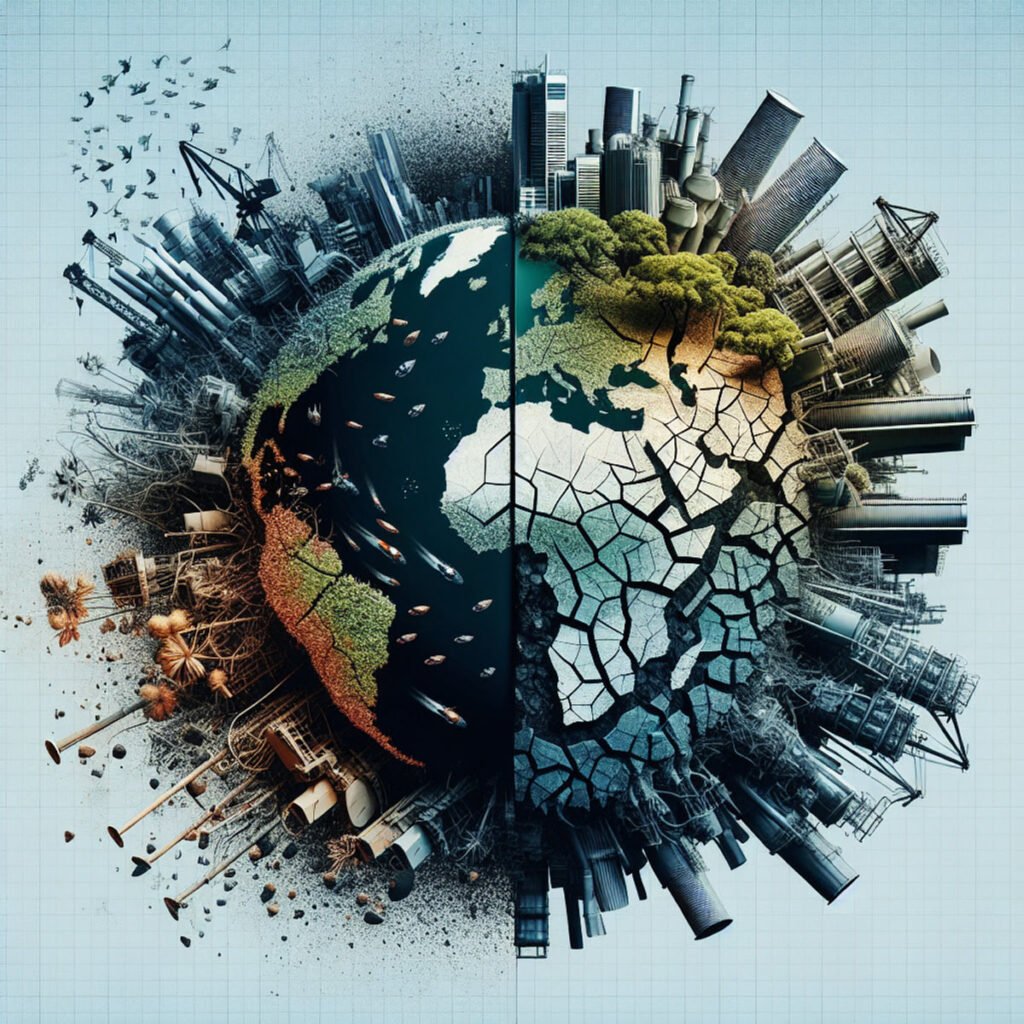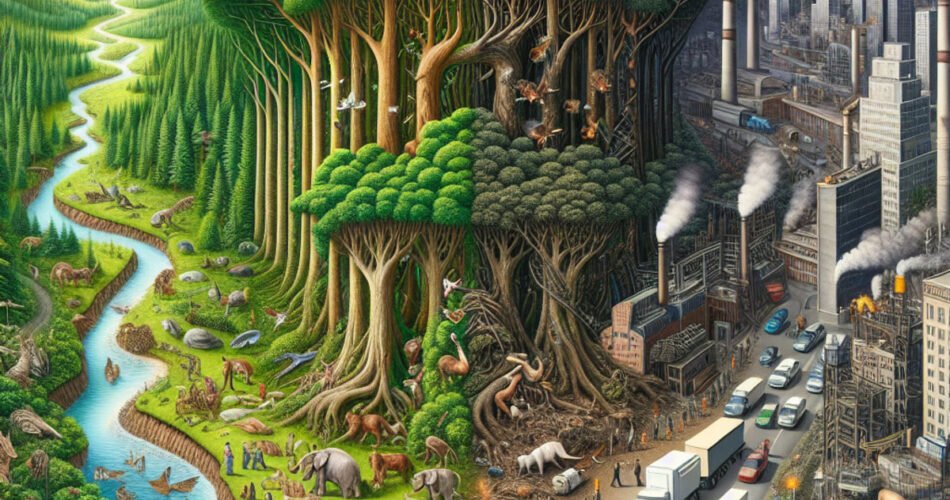Introduction
How Economic Growth Has Damaged the Environment?
The Link Between Economic Expansion and Ecological Deterioration Unraveled. Despite the undeniable benefits of economic growth in elevating living standards and alleviating poverty, its intricate connection to environmental decay cannot be overlooked. Let’s delve into the distinctive avenues through which the pursuit of economic progress has exacted a toll on our fragile ecosystems:
How Economic Growth Has Damaged the Environment?
Read More: Problem of Poverty in India

How Economic Growth has Damaged the Environment?
How Economic Growth Has Damaged the Environment?
- Increased Resource Extraction: Economic growth inherently involves heightened resource extraction, including minerals, fossil fuels, and timber. This results in deforestation, habitat destruction, and the depletion of natural resources, inflicting enduring harm on the environment.
- How Economic Growth Has Damaged the Environment?
- Industrialization and Pollution: The growth of economies triggers a surge in industrial activities, releasing pollutants into the air, water, and soil. Air and water pollution, stemming from emissions and improper waste disposal, pose significant threats to ecosystems and human health.
- Greenhouse Gas Emissions: Correlated with economic growth is an upswing in energy consumption, largely derived from fossil fuels. The consequential release of greenhouse gases, such as carbon dioxide and methane, contributes to climate change, manifesting in rising sea levels, extreme weather events, and disruptions to ecosystems.
- How Economic Growth Has Damaged the Environment?
- Land Use Changes: Urbanization and expanded agricultural practices, natural outcomes of economic growth, lead to habitat loss, fragmentation, and a decline in biodiversity. This transformation disrupts ecological balances, endangering the survival of various species.
- Waste Generation: Increased economic activities escalate waste production, with improper disposal causing environmental pollution. From plastic waste to hazardous materials, these pollutants persist, inflicting long-term harm on the environment.
- How Economic Growth Has Damaged the Environment?
- Overexploitation of Natural Resources: Economic growth often results in the overexploitation of fisheries, forests, and other natural resources. Overfishing, illegal logging, and unsustainable agriculture practices deplete ecosystems, leading to a loss of biodiversity and ecosystem services.
- Loss of Biodiversity: The interplay of habitat destruction, pollution, and climate change contributes to a loss of biodiversity. Economic activities directly threaten species, disrupt ecosystems, and diminish the overall resilience of natural systems.
- How Economic Growth Has Damaged the Environment?
- Water Scarcity: Rapid industrial and agricultural growth, coupled with population expansion, can contribute to water scarcity. Excessive water withdrawal, alongside pollution, degrades water quality and disrupts aquatic ecosystems.
Read More: Problem of Unemployment in India
How Economic Growth Has Damaged the Environment?
It is crucial to recognize the complexity of the relationship between economic growth and environmental degradation. Sustainable development serves as a crucial paradigm, aiming to decouple economic growth from environmental harm through responsible practices, technological innovations, and international cooperation. Implementing these strategies is paramount for achieving a delicate balance between economic prosperity and environmental sustainability. As we navigate this intricate landscape, the path forward lies in a conscious and concerted effort to harmonize growth with environmental preservation.
FAQ on How Economic Growth Has Irreversibly Ravaged the Environment?
How does economic growth contribute to deforestation and habitat destruction?
Explore the link between economic development and the increased extraction of natural resources like timber, leading to deforestation and habitat loss.
What are the main pollutants released during industrialization, and how do they impact the environment and human health?
Dive into the pollutants emitted during industrial activities, their effects on air and water quality, and the resulting consequences for ecosystems and human well-being.
How do greenhouse gas emissions from economic growth contribute to climate change?
Understand the correlation between economic growth, increased energy consumption, and the release of greenhouse gases, leading to climate change and its widespread impacts.
Can sustainable development effectively decouple economic growth from environmental harm?
Explore the concept of sustainable development and its potential to balance economic prosperity with responsible and environmentally friendly practices.
How does urbanization and agricultural expansion affect biodiversity and ecological balances?
Examine the consequences of land use changes associated with economic growth, including urbanization and expanded agriculture, on biodiversity and ecological equilibrium.
How does the loss of biodiversity affect the overall resilience of natural systems?
Understand the interconnectedness of habitat destruction, pollution, and climate change in contributing to the loss of biodiversity and its implications for the resilience of ecosystems.

